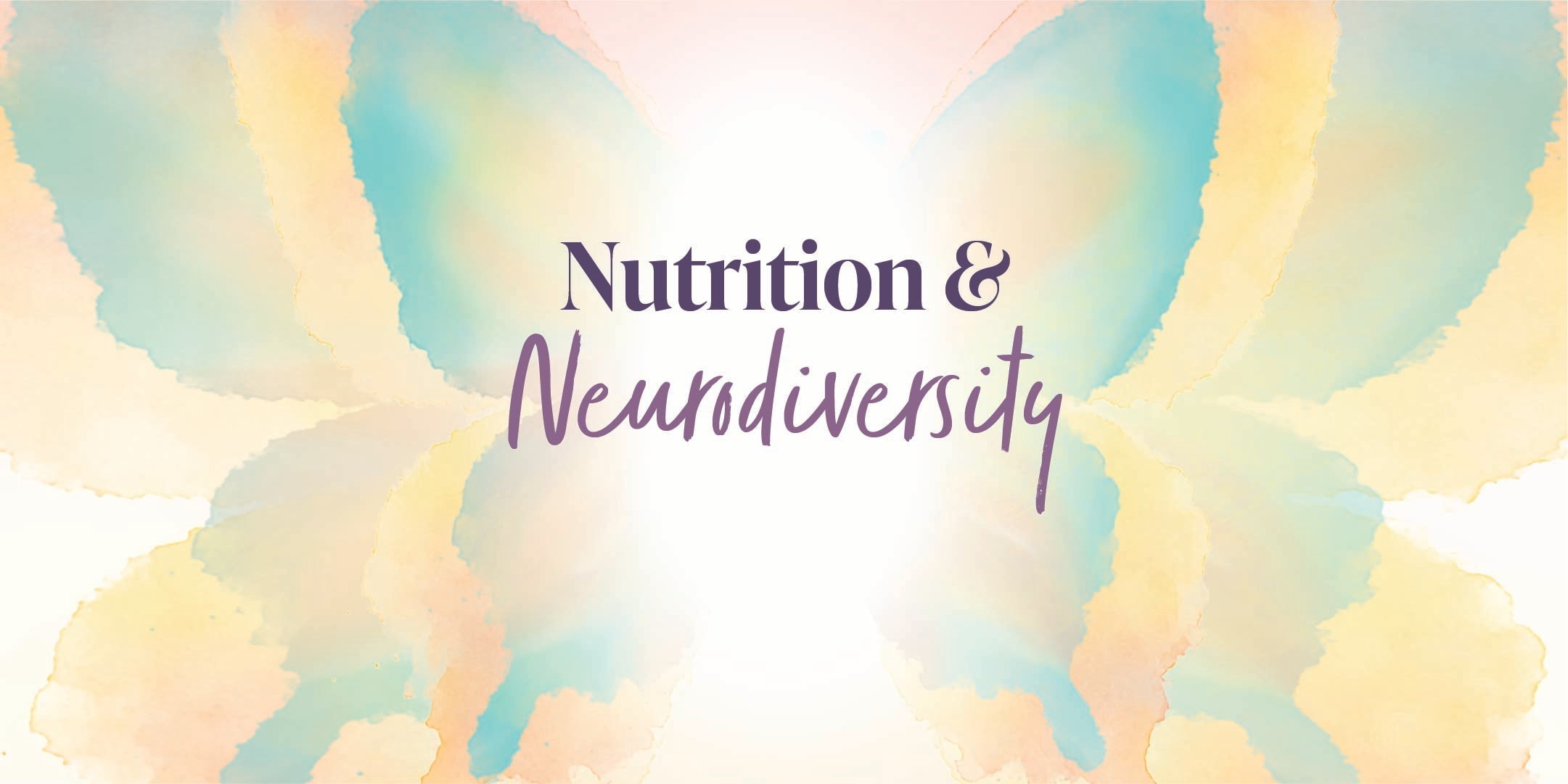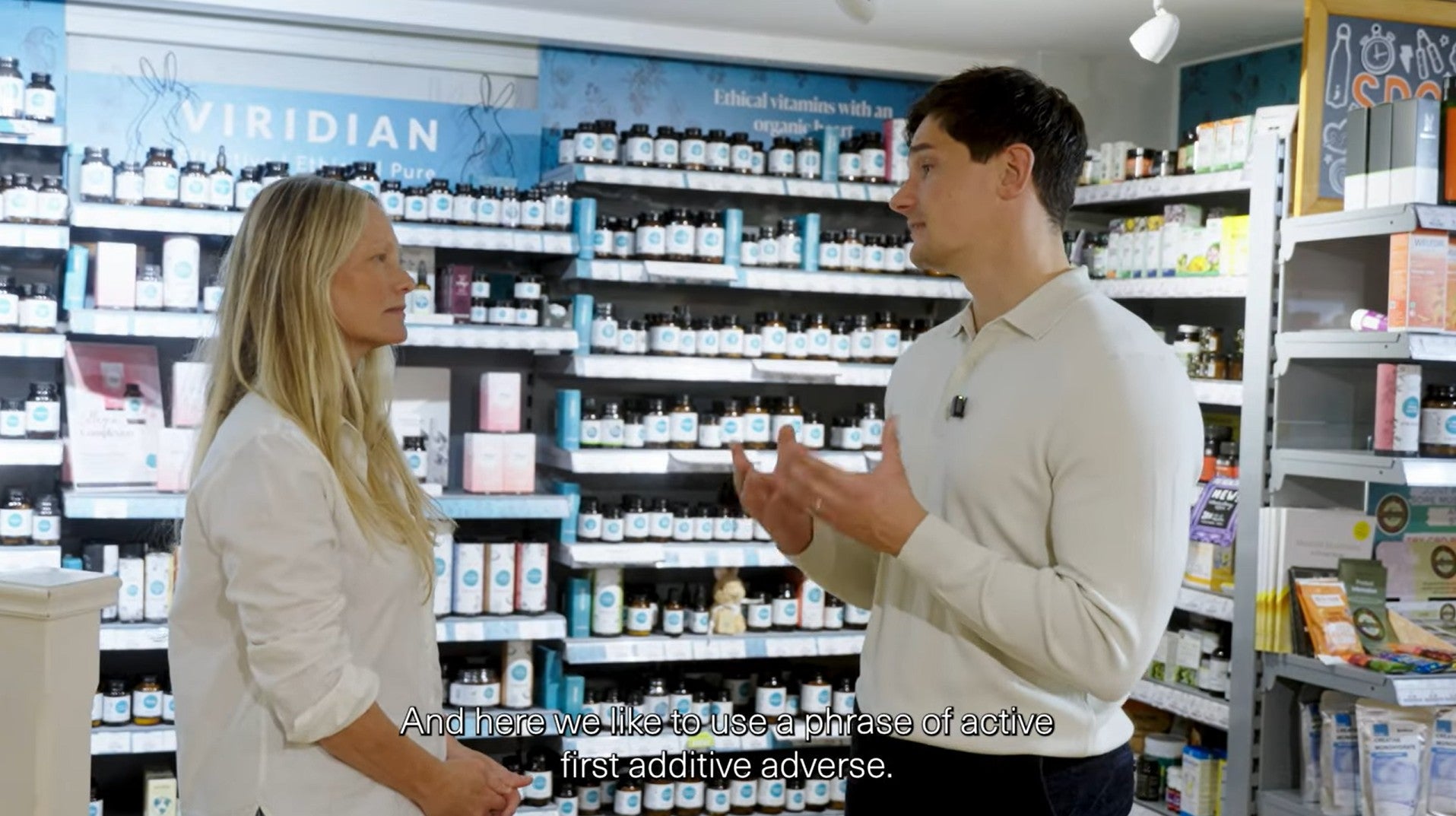
Following a vegan diet whether for ethical or environmental reasons, through to health-based motivations, comes with many health benefits.
For a start, eating a wholefood, plant-based diet will naturally increase your consumption of fruits and vegetables, adding essential fibre, vitamins, minerals, and nutrients to fuel the body. Interestingly, it has been shown that diets high in fibre are beneficial for overall gut health and help to diversify the gut microbiota.
Even short-term vegan diets can have a huge effect in helping bring down chronic inflammation in the body. Furthermore, whole plant foods are full of phytonutrients, many of which have anti-inflammatory properties. However, our busy lives mean modern plant-based diets are in danger of being characterised by ultra processed foods, thanks to the food industry. This is a far cry from 20 or 30 years ago where a vegan diet involved a reliance on whole foods.
The Ultra Processed Vegan Diet Trap
It’s easy to fall into the trap of eating vegan alternatives that are ultra processed. Pre-packaged vegan food is quicker to prepare when time is short, but junk foods are junk, vegan or not.
Veggie burgers and other food that imitate meat like beef and chicken often tend to be ultra processed and therefore are more likely low in fibre and protein but high in added salt, sugar and fat to make up lost flavour through the production phase.
Top Tips:
1/ Dig deeper into the vegan foods on the market that are full of additives and preservatives like modified starch, thickeners (xanthan gum, konjac, sodium alginate), acidity regulators, stabilisers (calcium sulphate), emulsifiers and flavourings. These can do more harm than good.
2/ Most plant-based foods aren't naturally high in fats, so typically are less calorie dense than animal products. Some people find that they lose weight during the transition over to a vegan diet, however, it can be easy to lose too much weight, so meal-planning is important. To avoid unwanted weight loss, it is best to focus on foods that are high in healthy fats and carbohydrates, like nuts, avocados, legumes, potatoes, nut butters and wholegrain bread.
3/ Avoid replacing animal products with ultra-processed vegan foods, as they tend to have additives, preservatives and are typically high in sugar. In the long term, this can cause other health issues, including excessive weight gain and diabetes.
Planning for a balanced vegan diet
Following a vegan diet takes a lot of planning to ensure all nutrient levels are met for optimal health and to prevent deficiency.
The key nutrients to be aware of that are commonly deficient are:
- Vitamin B12
- Iron
- Omega 3 fats
- Calcium
- Vitamin D
- Iodine
- Protein
The Vegan Way to Vitamins
B vitamins require consideration within the vegan diet, as it’s often low in B3, B6, choline and biotin and doesn’t provide any B12.
Vitamin B12 deficiency can cause pernicious anaemia, while low B3 and B6 can affect energy levels, disrupt hormones and cause high homocysteine levels.
Low choline status is associated with poor cognition and low biotin is associated with poor hair, skin and nail health. Fortunately, choosing a daily vegan multivitamin will supply these nutrients and help to optimise your vitamin and mineral levels.
Encouragingly, a study of 20 omnivores who switched to a vegan diet for 5 years, reported that those who supplemented with vitamin B12 or used fortified foods, maintained their B12 status.
As well as B vitamins, plants, seeds and sprouted seeds are incredible sources of vitamins C and vitamin E, flavonoids, and also carotenoids, which can be transformed into vitamin A. Government health experts recommend supplementing with at least 400IU of vitamin D daily. However, if you are diagnosed with vitamin D insufficiency, larger doses of vitamin D3 might be advised by a doctor or medical practitioner.
Minerals in a Vegan Diet
Iodine, calcium and iron are the hardest minerals to obtain from a vegan diet. The richest sources of minerals are derived from seaweed, algae and green leafy vegetables.
Iodine
Iodine supports the immune function and overall thyroid health. Low energy, constant colds, and unexplained weight gain can be signs of a lack of iodine. Adding kelp into your diet or taking a supplement can assist with your daily intake.
Iron
Similarly, low iron can affect energy and immunity. This is a nutrient to monitor more carefully in
menstruating women and endurance athletes as they have greater requirements. Legumes contain some iron, along with dark green vegetables, nuts and seeds. However, these are in the non-heme form, which is more difficult for the body absorb meaning supplementation might need to be considered.
Calcium
Calcium is probably one of the most well-known minerals. Calcium balance in the body requires magnesium, vitamin K and D. An indicator of bone mineralisation and calcification is the bone mineral density assessment (BMD). Its importance is highlighted by several investigations that show that those following a vegan diet have lower BMD scores and need to be aware of these minerals in the diet.
Nettle leaf, horsetail herb and seaweed are natural sources of macro and trace minerals including calcium, magnesium, zinc, selenium and manganese. Nuts and seeds are great sources of minerals. For example, pumpkin seeds are one of the highest sources of natural magnesium and pine nuts, cashews and almonds can help to boost zinc intake.
The Essential Fatty Acids
Some fats, such as omega 3 and omega 6 fatty acids are termed ‘essential’, meaning our bodies cannot make them and they must be consumed daily. Both omega 3 and 6 have important roles in the body and these include making and balancing hormones, improving brain function, maintaining cell integrity, improving blood viscosity, reducing inflammation, and improving cardiovascular health.
Omegas 3 and 6 are also essential for the health of our skin and hair. They help regulate the skin’s oil production and ultimately improve the hydration and appearance of the skin by minimising signs of ageing. Omega 3 also helps to nourish hair from the follicles, helping to soothe and add moisture to a dry scalp and giving shine to hair.
Omega 3 fats, EPA and DHA, are not found in the vegan diet, which instead relies on the conversion of alpha linolenic acid (ALA) found in nuts, seeds and avocado to EPA and DHA. This is a not a very efficient process, so can lead to deficiency.
As EPA and DHA are so vital for brain health, especially for developing brains in children, algae derived EPA and DHA is an excellent way to supplement a vegan diet and maintain a healthier omega 3 to omega 6 balance.
Packed With Protein
Protein plays an important role in the body. It is made up of the building blocks amino acids, which are used to form and repair tissues throughout the body including muscles, skin, hair and nails. Protein is not stored by the body like other macronutrients, so we must consume it every day. There are 22 amino acids, some of which can be produced in the body if sufficient protein is consumed and others, known as essential amino acids, must be provided by the diet.
A complete protein that provides all the essential amino acids can be challenging to include in a vegan diet. Hemp, quinoa and soya are complete proteins. Pairing two incomplete proteins can make a complete protein, e.g peanut butter on wholegrain bread or lentils and rice.
The current government health experts' guideline for protein intake is 55g/day for men and 45g/day for women, equating to around 0.75g of protein per kilogram of body weight. However, depending on age, gender and level of physical activity, this might change. For example, elderly people need to up their protein intake by 50% compared to the recommended intake, as the body becomes less efficient at using protein.
Conclusion:
With careful planning, a balanced plant-based diet, using supplementation to top up or fill nutritional gaps, can help you to get the most out of a vegan way of eating. Be careful of ultra processed foods which are described as vegan as they carry a lot of junk ingredients. Always check the ingredients label. Specialist health stores cater for an array of food items for all diets, supplements and can provide lifestyle advice. To find your nearest one, visit: findalhealthstore.com
Author: Eleanor Faulkner, BSc, is a Nutrition Advisor at Viridian Nutrition. She holds a BSc honours degree in Food Technology with Nutrition.
References
Mądry E, Lisowska A, Grebowiec P, Walkowiak J. The impact of vegan diet on B-12 status in healthy omnivores: five-year prospective study. Acta Sci Pol Technol Aliment. 2012 Apr 2;11(2):209-12.
Public Health England. PHE publishes new advice on vitamin D. 2016 https://www.gov.uk/government/news/phe-publishes-new-advice-on-vitamin-d
Waldmann A, Koschizke JW, Leitzmann C, Hahn A. Dietary iron intake and iron status of German female vegans: results of the German vegan study. Ann Nutr Metab. 2004;48(2):103-8. Chiu JF, Lan SJ, Yang CY, Wang PW, Yao WJ, Su LH, Hsieh CC. Long-term vegetarian diet and bone mineral density in postmenopausal Taiwanese women. Calcif Tissue Int. 1997 Mar;60(3):245-9.
Outila TA, Kärkkäinen MU, Seppänen RH, Lamberg-Allardt CJ. Dietary intake of vitamin D in premenopausal, healthy vegans was insufficient to maintain concentrations of serum 25-hydroxyvitamin D and intact parathyroid hormone within normal ranges during the winter in Finland. J Am Diet Assoc. 2000 Apr;100(4):434-41.
Parsons TJ, van Dusseldorp M, van der Vliet M, van de Werken K, Schaafsma G, van Staveren WA. Reduced bone mass in Dutch adolescents fed a macrobiotic diet in early life. J Bone Miner Res. 1997 Sep;12(9):1486-94.
Lonnie M, Hooker E, Brunstrom JM, Corfe BM, Green MA, Watson AW, Williams EA, Stevenson EJ, Penson S, Johnstone AM. Protein for Life: Review of Optimal Protein Intake, Sustainable Dietary Sources and the Effect on Appetite in Ageing Adults. Nutrients. 2018 Mar 16;10(3):360. doi: 10.3390/nu10030360. PMID: 29547523; PMCID: PMC5872778.
Patel DP, Swink SM, Castelo-Soccio L. A Review of the Use of Biotin for Hair Loss. Skin Appendage Disord. 2017 Aug;3(3):166-169. doi: 10.1159/000462981. Epub 2017 Apr 27.
Marie A. Caudill, Barbara J. Strupp, Laura Muscalu, Julie E. H. Nevins, and Richard L. Canfield. Maternal choline supplementation during the third trimester of pregnancy improves infant information processing speed: a randomised, double blind, controlled feeding study. The FASEB Journal. 2018 32:4, 2172-2180
Bergman P, Lindh AU, Björkhem-Bergman L, Lindh JD. Vitamin D and Respiratory Tract Infections: A Systematic Review and Meta-Analysis of Randomized Controlled Trials. PLoS One. 2013 Jun 19;8(6):e65835.
Komar, B., Schwingshackl, L. & Hoffmann, G. J Nutr Health Aging (2015) 19: 437. Martínez-Arnau FM, Fonfría-Vivas R, Cauli O. Beneficial Effects of Leucine Supplementation on Criteria for Sarcopenia: A Systematic Review. Nutrients. 2019 Oct 17;11(10). pii: E2504.
Waldmann, A., Koschizke, J. W., Leitzmann, C., Hahn, A. 2004. Dietary Iron Intake and Iron Status of German Female Vegans: Results of the German Vegan Study. Annals of Nutrition & Metabolism, 48(2), 103–108. https://www.jstor.org/stable/48507299
Key, T., Papier, K., Tong, T. 2022. Plant-based diets and longterm health: findings from the EPIC-oxford study, Proc Nutr Soc, 81 (2), 190-198. doi: 10.1017/S0029665121003748
Von Schacky, C. 2021. Importance of EPA and DHA Blood Levels in Brain Structure and Function. Nutrients 2021, 13, 1074. https://doi.org/10.3390/nu13041074
Brenna, J.T., Salem Jr, N., Sinclair, A.J. and Cunnane, S.C., 2009. a-Linolenic acid supplementation and conversion to n-3 long-chain polyunsaturated fatty acids in humans. Prostaglandins, leukotrienes and essential fatty acids, 80(2-3), pp.85-91. https://doi.org/10.1016/j. plefa.2009.01.004
The information contained in this article is not intended to treat, diagnose or replace the advice of a health practitioner. Please consult a qualified health practitioner if you have a pre-existing health condition or are currently taking medication. Food supplements should not be used as a substitute for a varied and balanced diet.







